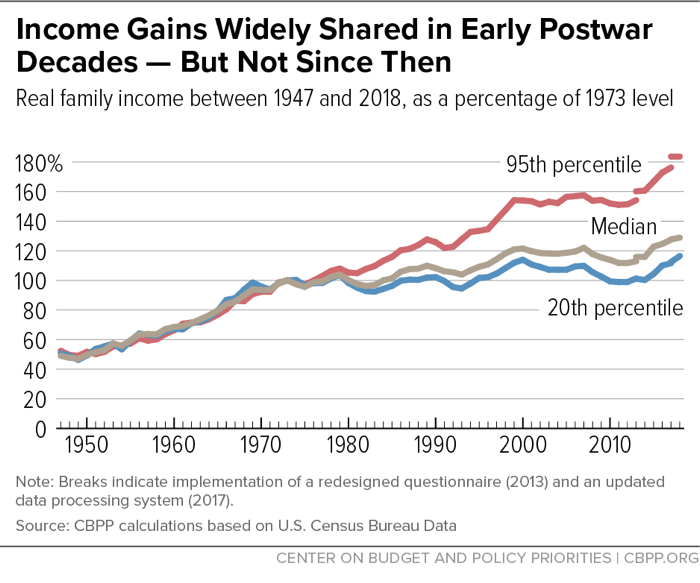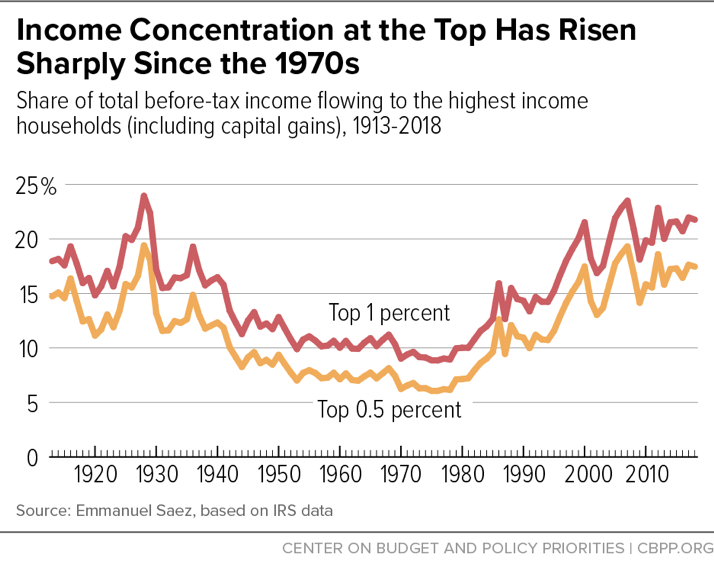Quote:
Originally Posted by CliffFletcher

You’re still using 1980 as the date of transition, when 1973 was when broad economic growth slowed dramatically.
The whole narrative that the golden post-war egalitarian society was ruined by Reagan and Thatcher relies on ignoring the 70s and how dismal they were for most people. It was the failure of the post-war economic model to sustain broad prosperity that paved the way for Reagan and Thatcher to gain power, not the other way around.
|
You're still conflating the economic pain of recessions that
everyone felt, with economic pain being concentrated on the bottom 3-4 quintiles of income. That's not the point, and it never has been. Not once did I say anything about the 1970s being a boom time or a period of high growth, so talking about how miserable it was is arguing against a point that no one made. I'm talking strictly about income equality across different income levels and how it has changed over time.
If there's no or slow growth and no one's wages really go up, then people will be unhappy, but it's not evidence of growing inequality. However, when there is growth and it's almost entirely concentrated among the wealthy and high income earners, that is inequality.
As you can see, right through the '70s, lower wage workers kept pace with higher wage ones. Only in the late '70s did they really start to diverge, and then it really took hold in the '80s:

The income share of the top 0.5% and top 1% show the exact same thing, where their share continued to drop through the '70s (5-6 years after 1973) before rocketing up after 1980:

And those charts are before tax, so the effect of Reagan's tax cuts which dramatically lowered high earners' tax burden would have been even more dramatic.